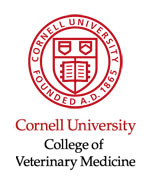Steve Osofsky
Steve Osofsky, D.V.M., first experienced East Africa in 1984-85
as a Harvard University Traveling Fellow, observing wildlife
species in Kenya, Tanzania, and Rwanda while examining conservation
challenges from a variety of perspectives including those of
local people, NGOs, and governments. As a veterinarian, he has
worked in a variety of domestic and international contexts, with
his most recent overseas post being that of the first Wildlife
Veterinary Officer for the Botswana Department of Wildlife and
National Parks. Dr. Osofsky worked directly for the Government
of Botswana, and was able to have an active role in hands-on
wildlife management as well as policy formulation. He has also
worked in the zoological community, and served as the Director
of Animal Health Services at the Fossil Rim Wildlife Center in
Texas. As an American Association for the Advancement of Science
(AAAS) Science and Diplomacy Fellow, he served as a Biodiversity
Program Specialist at USAID and focused on: ground-truthing Integrated
Conservation and Development Projects; providing technical advice
on wildlife management; and working with the USFWS on the Rhino-Tiger
and African Elephant Grants Programs, on CITES policy, etc.
Dr. Osofsky's program / policy interests include: park/buffer zone management
and planning; linking wildlife conservation and sustainable development; conflicts
at the livestock-wildlife interface (problem predator issues, disease concerns);
endangered species management; linking wildlife research to management needs,
as well as in situ and ex situ wildlife veterinary medicine. He is an Adjunct
Assistant Professor at the University of Maryland, and also serves on eight IUCN
SSC Specialist Groups. Dr. Osofsky had been with the World Wildlife Fund since
1998, serving as their Director, Field Support for species programs in Asia and
Africa. In December 2002, he left WWF to join the Wildlife Conservation Society’s
Field Veterinary Program (FVP) as the Society’s first Senior Policy Advisor
for Wildlife Health. Helping the Field Veterinary Program to expand into the
policy arena is an exciting challenge, one that logically builds upon the scientific
and hands-on fieldwork that has long been the FVP’s hallmark. |
|










